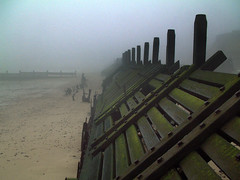Q – an historical novel set in the 1500s. A story of rebellions, war, adventure but, above all else, Q is about ideas. Ideas that were important and helped get us to where we are today but seem, from the height of history, quite ridiculous, small and petty. That probably doesn't sound like a great reason to read it, but it is.
The tension arises from the tyrannical nature of the church, a creature grown powerful and rich, in command of much of western Europe. So much so that any ideas that go against the grain, anything that might damage the papacy, have to be swiftly brought under control with all the political, economic or military might that Rome can muster. And here is the conflict. The church seeks control, seeks to be a mediator between the uneducated masses and the god it preaches to them, the god – it claims – that they can only understand via this institution of learned men. So the people have no god except the church, the institution is lord. And the institution has no god except power, except control; no matter how many hours the cardinals spend discussing an issue raised in the gospels, no matter hour many hours they spend praying, it is only power that ultimately motivates them.
The threat comes in many guises, but the aim is always to free the common man from the dual yoke of the church and the gentry. So a sect preaching that god is within you, that you can understand god through yourself, that all you need is a bible and some quiet minutes of your own, such a sect is a major threat. So too is a man re-baptising adults and talking of how baptism as a child is meaningless as a child has no concept of god, no concept but the ritual of the church. From where I sit, atheist in 2005, these kinds of issues seem sometimes like nit-picking and sometimes completely, obviously, in the spirit of the church's teaching (as I understand it at least), but back then, at the time of reformation and rebellion, such teachings were bombs waiting to go off around western Europe.
And this is what is fascinating. An institution we take for granted as essentially without political power except, perhaps, for the ability to engage in dialogue with world leaders; an institution without even the
remit to seek this power behaving like it owns the place. Behaving completely contrary to what we'd now see as its main teachings, yet behaving within a framework based upon those same teachings. It's incredibly sinister, it certainly makes you wonder how differently it could all have turned out.
And I think these ideas form our own bombshell. Bertrand Russell's History of Western Philosophy discusses a lot of issues surrounding the genesis, growth and domination of the church. One comment that has really stuck in my head is how, in the Book of Isaiah (written around 700BC), one of the authors/prophets is the first to declaim: "there is no god but I" (p295). He simply decided that one god, his god, was the way it should be and promptly gave the church license to declared anyone with a different faith a heretic. Russell also reports that
"The idea that all religions but one are wicked, and that the Lord punishes idolatry, was apparently invented by these prophets [Jeremiah and Ezekiel, around 600BC]. The prophets, on the whole, were fiercely nationalistic, and looked forward to the day when the Lord would utterly destroy the gentiles." (p294)
These are incredible events. Where does this legitimacy arise? Simply from history and bloody-mindedness, from repetition over generations. Faith is, well, faith – unfounded and of human origin. How can anyone have such conviction in religious matters that they are driven not only to believe even the strangest tales but to kill because of them? How does this override the message of forgiveness and love thy neighbour which is the overwhelming message of Christianity? Fear has certainly got something to do with it, the image of a vengeful and angry god was prevalent through much of this time. But what else? The simple answer is I just don't know. I can see how religion can arise from ignorance of the world, how understanding is preceded by superstition and arbitrary belief, but how does this belief become so powerful? How does it become the dominant part of life? And especially now, why do we still believe? I have no answer, but what Q helps to teach us is how misplaced this all is, how whatever institutions we put in place, whatever ideals they arise from, the only ultimate motivator is power and greed. And the only conclusion is war, disillusionment and strife. All for no purpose but to perpetuate this crazy game.
Find out more on Q at
Luther Blisset.net.




